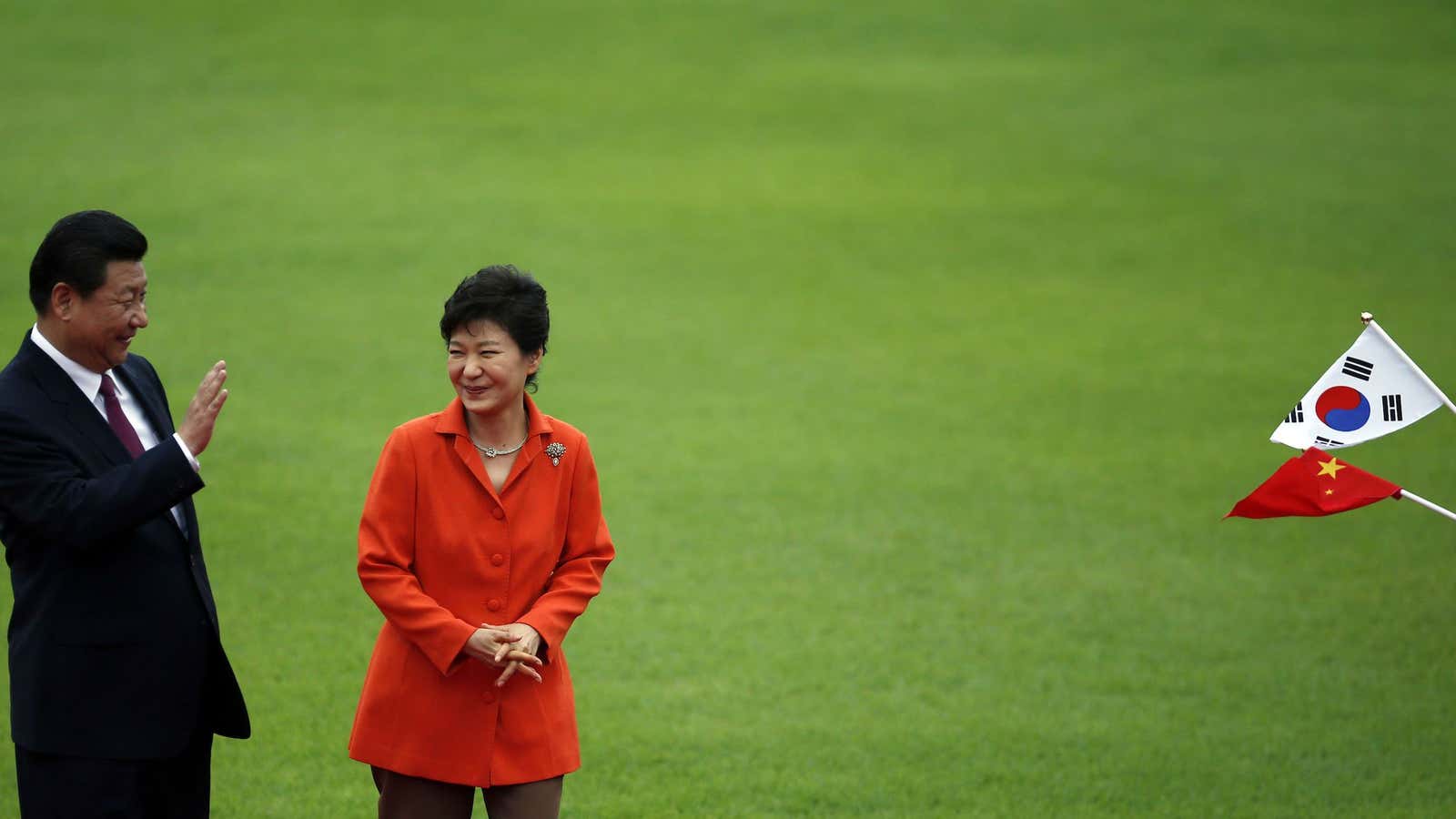Chinese president Xi Jinping has been courting South Korea’s Park Geun-hye this week, and in the process snubbing China’s longtime ally, North Korea. Meanwhile, Japan has announced plans to drop some sanctions against North Korea, imposed when the regime abducted Japanese citizens in the 1970s and 1980s. It also recently decided to amend its pacifist constitution to allow for a more active military, in the face of increasingly aggressive Chinese maritime claims.
These developments are all signs of the shifting alliances in East Asia, which as well as contributing as much as 40% of global GDP is also one of the world’s most contentious security flashpoints.
The biggest political change in the region is China’s relationship with South Korea. Observers have taken Xi’s recent overtures towards Seoul to mean that he is growing increasingly impatient with Pyongyang, and wants to form alliances against Japan and possibly the US as well.
To do this, Xi comes bearing promises of increasing trade between the two countries—already worth around $230 billion annually. On July 3, Xi and Park agreed to finalize a free trade deal before the end of the year and to set up direct yuan-won trading. On July 4, founders of three of China’s top tech giants—Baidu, Alibaba, and Huawei—as well as over 200 other executives attend a China-South Korea business forum to discuss finance, manufacturing, services and other sectors.
However, though China’s ambassador to Seoul has said that ties between the two countries have ”never been better,” there are limits to the relationship. While South Korea wants North Korea stripped of its nukes, China’s top priority is maintaining the regime’s stability and avoiding a flood of North Korean refugees. “South Korea and China have common goals on denuclearization, but we do have differences,” Yang Xiwu, a fellow at the China Institute for International Studies in Beijing, told the New York Times. He said that China was not pursuing “pure nonproliferation” in North Korea.
The two countries even differ on the issue where they would seem to have the most common ground: Japan. China and Japan are at loggerheads over the Senkaku/Diaoyu islands in the East China Sea. South Korea and Japan have been reopening old wounds about past conflicts. And as China becomes increasingly embroiled in controversy over its claims in the South China Sea, South Korea is one of the few countries in the region with which it doesn’t have a maritime dispute.
So far, though, South Korea has preferred to exert pressure on Japan through its ally, the US, instead of via China. ”A strong economic relationship between China and South Korea has brought Beijing and Seoul closer together than ever before, but a strategic sense of common purpose and shared common interest between the two countries remains lacking,” writes Scott Snyder, senior fellow of Korean studies at the Council on Foreign Relations. As a result, Snyder says, “there remain clear limits on the development of the political and strategic relationship between the two countries.”
